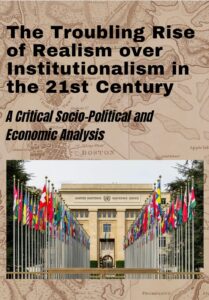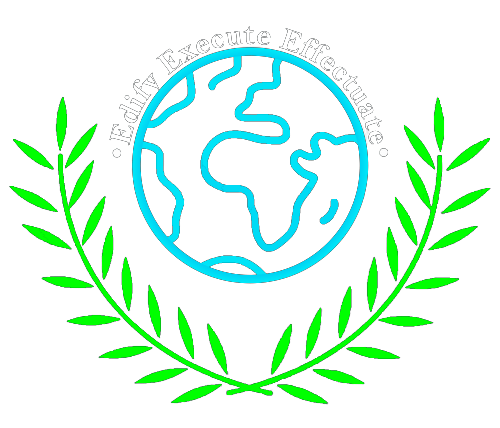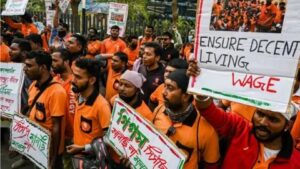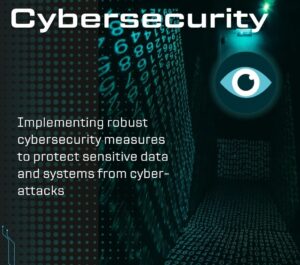ABSTRACT Diplomacy in conflict region’s failure is not measured in policy terms, but in human lives. In volatile zones such as Gaza, Sudan, or Eastern Ukraine, diplomacy transcends quiet negotiations; it becomes an urgent, high-risk pursuit of stability amid violence and fractured authority. One of the central challenges is the absence of a neutral ground. In asymmetric conflicts—where governments, insurgents, and foreign proxies simultaneously claim legitimacy—diplomats confront an ethical dilemma: to engage may risk legitimising violence, yet to disengage may prolong suffering. Sovereignty and humanitarian duty often collide. The 2011 Libya intervention, which began as a humanitarian effort and swiftly turned into regime change, underscores the tension between moral responsibility and political consequence. Impartiality is also fragile. In arenas where great powers support opposing sides—such as Syria or Yemen—diplomatic credibility is compromised, and multilateral institutions like the UN or African Union struggle to mediate with authority. Realpolitik casts a long shadow. Strategic interests—alliances with authoritarian regimes, energy corridors, or migration control—often overshadow human rights, transforming diplomacy into a quiet enabler of instability. Yet history also offers lessons in resilience. Peace-building efforts in Colombia or post-genocide Rwanda highlight the potential of diplomacy when it is inclusive, sustained, and locally grounded. In these fragile contexts, diplomacy must be more than negotiation. It requires moral clarity, cultural fluency, and principled resolve. Diplomats must engage not only with governments but also with the voices of the displaced, the silenced, and the scarred. Ultimately, diplomacy in conflict zones must evolve beyond crisis management. It must become a force for structural transformation—dismantling the systems that sustain violence and rebuilding futures rooted in justice, dignity, and peace. KEYWORDS: Conflict Diplomacy, Asymmetric Warfare, Humanitarian Intervention, Sovereignty vs Human Rights, Ethical Dilemmas in Diplomacy, and Structural Transformation. INTRODUCTION In conflict zones, diplomacy is no longer a quiet, behind-the-scenes craft—it becomes a high-stakes mission where words can save lives or deepen wounds. As the world grapples with protracted crises in Gaza, Sudan, Eastern Ukraine, Syria, and beyond, the traditional frameworks of diplomatic engagement are being tested like never before. The boundaries between state and non-state actors blur. Legitimacy is contested. Neutral ground is elusive. In such volatile terrains, diplomacy becomes not just a matter of negotiation, but of survival, ethics, and strategy. This article explores the complex dimensions of diplomacy in conflict regions, where each decision carries profound humanitarian, political, and moral consequences. It examines how diplomats navigate contested sovereignty, asymmetrical warfare, and fractured authority structures—often under pressure from competing global interests. Through real-world cases, it analyses the ethical dilemmas of engagement: when speaking to violent actors risks legitimising them, but silence may mean abandoning the vulnerable. Furthermore, the article interrogates the role of multilateral institutions such as the United Nations and African Union, whose efforts are often constrained by limited authority and geopolitical influence. It explores how realpolitik—strategic alliances, energy dependencies, and migration controls—can distort diplomatic priorities, sometimes at the cost of long-term peace. Yet amid these challenges, the article also highlights pathways forward. Drawing on examples of transformative peace building efforts, it argues that diplomacy in conflict zones must evolve beyond reactive crisis management. It must become a proactive force for structural change—one that listens to the displaced, centre’s justice, and rebuilds war-torn societies with dignity. By tracing the tensions between principle and pragmatism, this article aims to provoke fresh thinking about diplomacy’s role in the world’s most fragile regions—and to imagine a future where diplomacy becomes a genuine instrument of peace. TYPES OF CONFLICT AREAS AND THEIR UNIQUE CHALLENGES Typologies of conflict zones and their distinct challenges. In a world increasingly shaped by geopolitical tensions and internal fractures, understanding the types of conflict zones is essential for developing sustainable peace frameworks. While conflicts often overlap in causes and outcomes, they are commonly categorised as ethnic, ideological, resource-based, territorial, and political. Each presents a distinct set of challenges for policymakers, peace builders, and affected communities. Ethnic Conflicts Ethnic conflicts stem from historical grievances, cultural exclusion, or contested national identities. Since 1946, nearly 40% of armed conflicts have had ethnic dimensions.¹ South Sudan and the Balkans exemplify how deeply rooted ethnic divisions disrupt state-building and require long-term reconciliation efforts that go beyond ceasefires. Ideological Conflicts Ideologically driven conflicts are marked by clashes in political, religious, or philosophical beliefs. The Taliban in Afghanistan or ISIS in the Levant illustrate how such rigid ideologies threaten pluralism.² These conflicts resist resolution through military means alone and demand counter-radicalisation, education, and ideological reintegration. Resource-Based Conflicts Over 45% of civil wars since 1990 have been linked to disputes over natural resources.³ In places like the Niger Delta and the DRC, the struggle over oil or minerals is intensified by environmental degradation, corruption, and foreign exploitation. These dynamics turn local grievances into protracted violence. Territorial Conflicts Disputes involving borders—such as Kashmir, the South China Sea, or Israel-Palestine—are rooted in sovereignty claims, national identity, and legal ambiguity.⁴ These conflicts often become internationalised, with negotiation complicated by competing historical narratives and strategic interests. Political Conflicts Political instability frequently emerges in fragile democracies or autocracies. Myanmar’s 2021 coup and Venezuela’s constitutional crisis show how governance failures and power struggles trigger civil unrest and legitimatise institutions.⁵ Restoring trust and accountability in such contexts is a long, delicate process. Therefore, each conflict zone carries unique historical, political, and socioeconomic complexities. Lasting peace cannot emerge from generic solutions; it requires tailored, inclusive strategies that address root causes, not just symptoms. By appreciating the distinctions between conflict types, global actors can better foster durable and just peace. DIPLOMATIC METHODS USED IN CONFLICTS Diplomacy continues to be one of the pillars of conflict resolution and transformation across the world. Diplomacy involves a range of formal and informal dialogue and negotiations, and efforts to mitigate hostility, promote cooperation and sustain peace in the long-term. Particularly when applied in conflict-ridden areas, like the middle east, sub-saharan Africa and certain areas of South Asia, diplomacy encompasses both formal and informal methods of statecraft and peace-building. The









